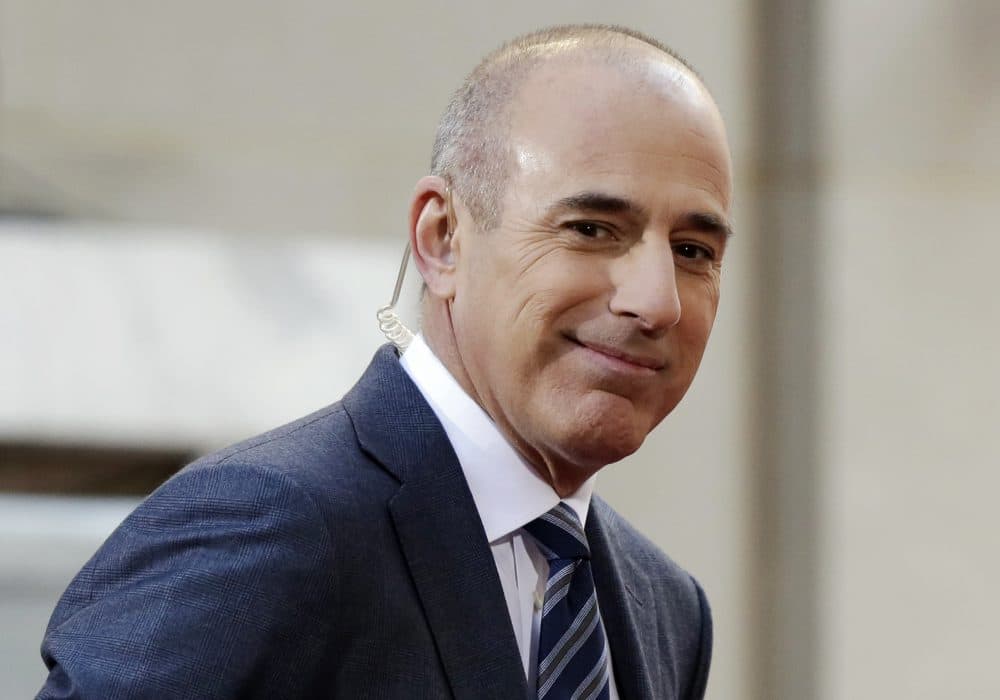Advertisement
Commentary
This Is Why Organizations Should Not Investigate Themselves

Following the November 2017, firing of Today Show host Matt Lauer, the CEO of NBCUniversal directed the company’s general counsel to supervise an investigation into whether corporate leaders had information about inappropriate conduct by Lauer and, if so, whether they were reported and addressed appropriately.
Not surprisingly, the final report exonerated NBC leadership, stating that the company was unable to establish that persons in a position of authority knew of Lauer’s behavior.
NBC’s report provides compelling insight into why companies should not conduct their own investigations into workplace culture, especially when the examination is based on allegations of sexual harassment or other inappropriate behaviors. Self-directed investigations are premised on the misguided notion that, in a workplace where bad behavior has been perceived to be tolerated or ignored, the veil of fear and secrecy will be lifted simply because management is finally asking the right questions.
NBC’s report concludes that corporate leaders “credibly responded” that they had no knowledge of Lauer’s sexual activity with employees, even as they were aware of rumors about his troubled marriage and extramarital affairs. The investigators also found no pattern of behavior that violated company policy or that created a culture of harassment. The report’s carefully chosen words present a picture of a well-liked host who engaged in sexually-charged banter but who held back when his suggestive comments were ignored.
The report also states that interviewees were provided an opportunity to raise other examples of inappropriate workplace conduct, and only “a small number” expressed concerns, including rumored affairs among employees. According to the report, most of the concerns raised had previously been addressed; the remainder were being investigated, even as they were described as “allegations of conduct less egregious” than Lauer’s. As has been seen in other instances of reported sexual harassment, however, a culture that enables one perpetrator to act with impunity is likely to be a safe harbor for others.
As part of the investigation, a team from NBCUniversal’s Labor and Employment Law group held small sessions to determine whether employees perceived cultural barriers to reporting behaviors of concern. The report summarized these conversations in vague terms, noting that “a significant majority of participants would feel comfortable” reporting to HR while “a substantial number” expressed uncertainty as to whether their concerns would be investigated and appropriate action taken. The nuanced analysis reinforces the reasonable inference that attendees at these sessions might not have been comfortable speaking up in front of colleagues and NBC investigators who could also have positions of power over their careers.
NBC reported that it consulted with outside law firms who concluded that the investigative steps taken were appropriate. But there is a wide gulf between “appropriate steps” and an investigation that is designed to provide unfiltered and honest responses.
Shortly after Lauer’s firing, news outlets reported that knowledge of Lauer’s behavior around women was well-known within the organization, but his stature and power served as a protective shield. These reports should have been sufficient for NBC to conclude that employees who were unwilling to come forward over a period of decades would not suddenly feel safe speaking openly to a leadership team of investigators and internal lawyers.
Leaders of an organization, tasked with investigating their own workplace, are likely to bring to their role an unconscious bias in favor of information that confirms their own views. Confirmation bias can govern whether interviewees are judged as credible, or whether allegations are viewed as banter or something more sinister.
Organizations that want to understand their own culture cannot investigate themselves and expect direct and honest answers. Employees need the safety and anonymity that only an independent investigation can provide. NBC may feel its investigation has been completed, but it remains to be seen whether it actually learned anything.